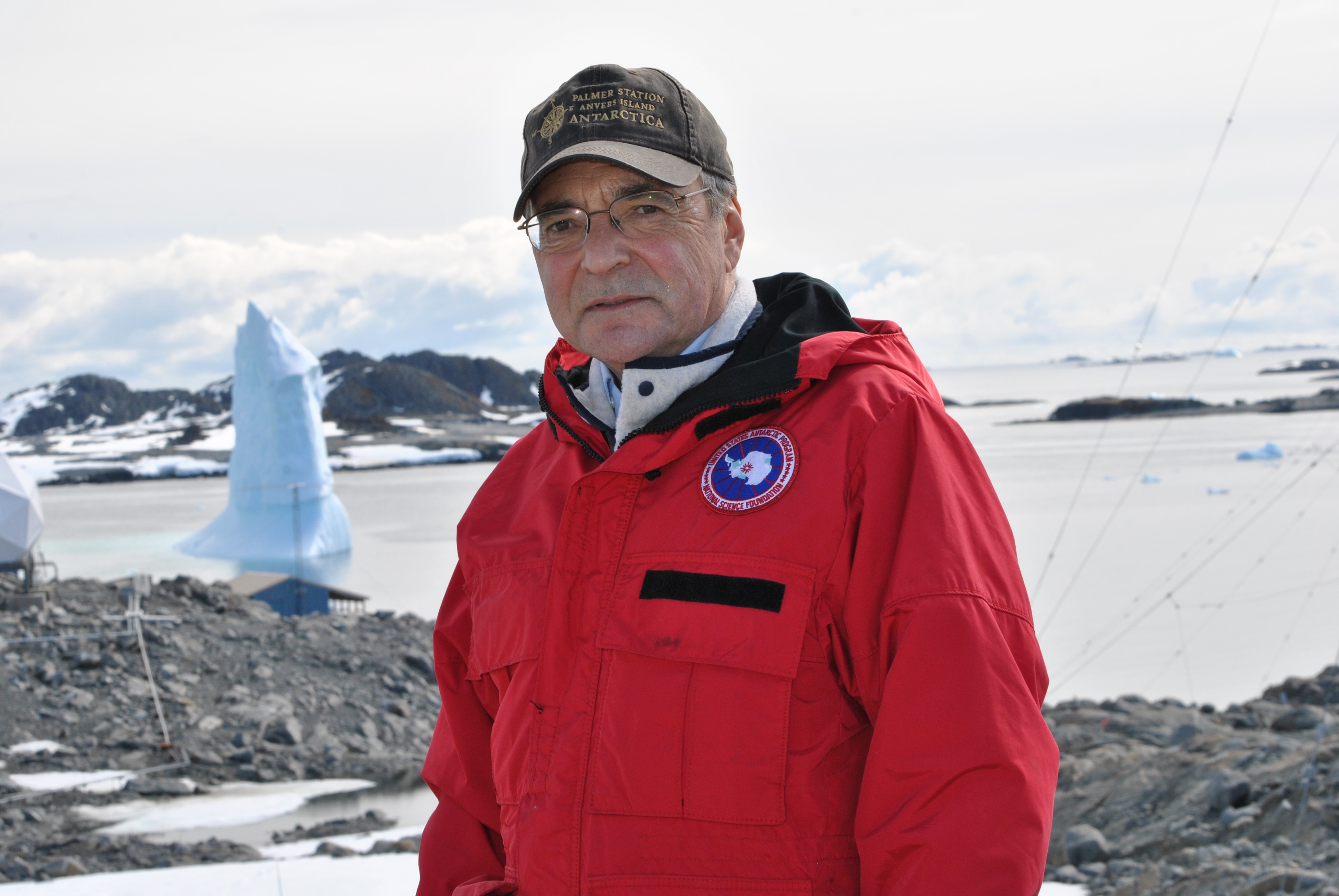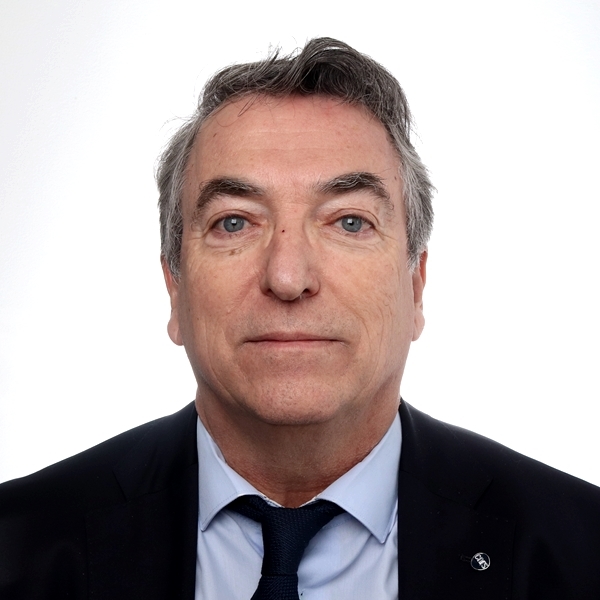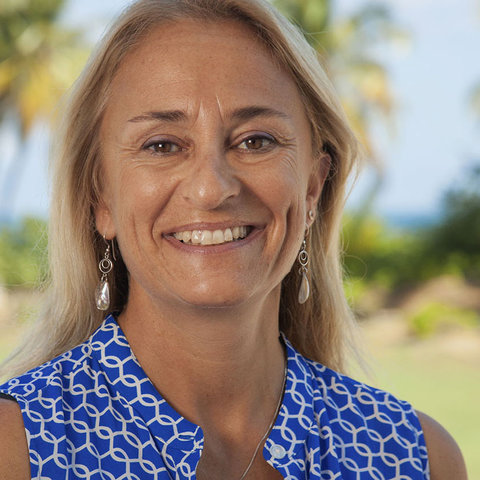 Tenders and Job Opportunities
Tenders and Job Opportunities Job calls
Job calls Scholarships and research fellowships
Scholarships and research fellowships Open Calls
Open Calls ENGLISH
ENGLISH Pages
Pages
Pages
EMHOC - Electron Microscopy Hands-On Course: sample preparation and imaging of marine environmental samples
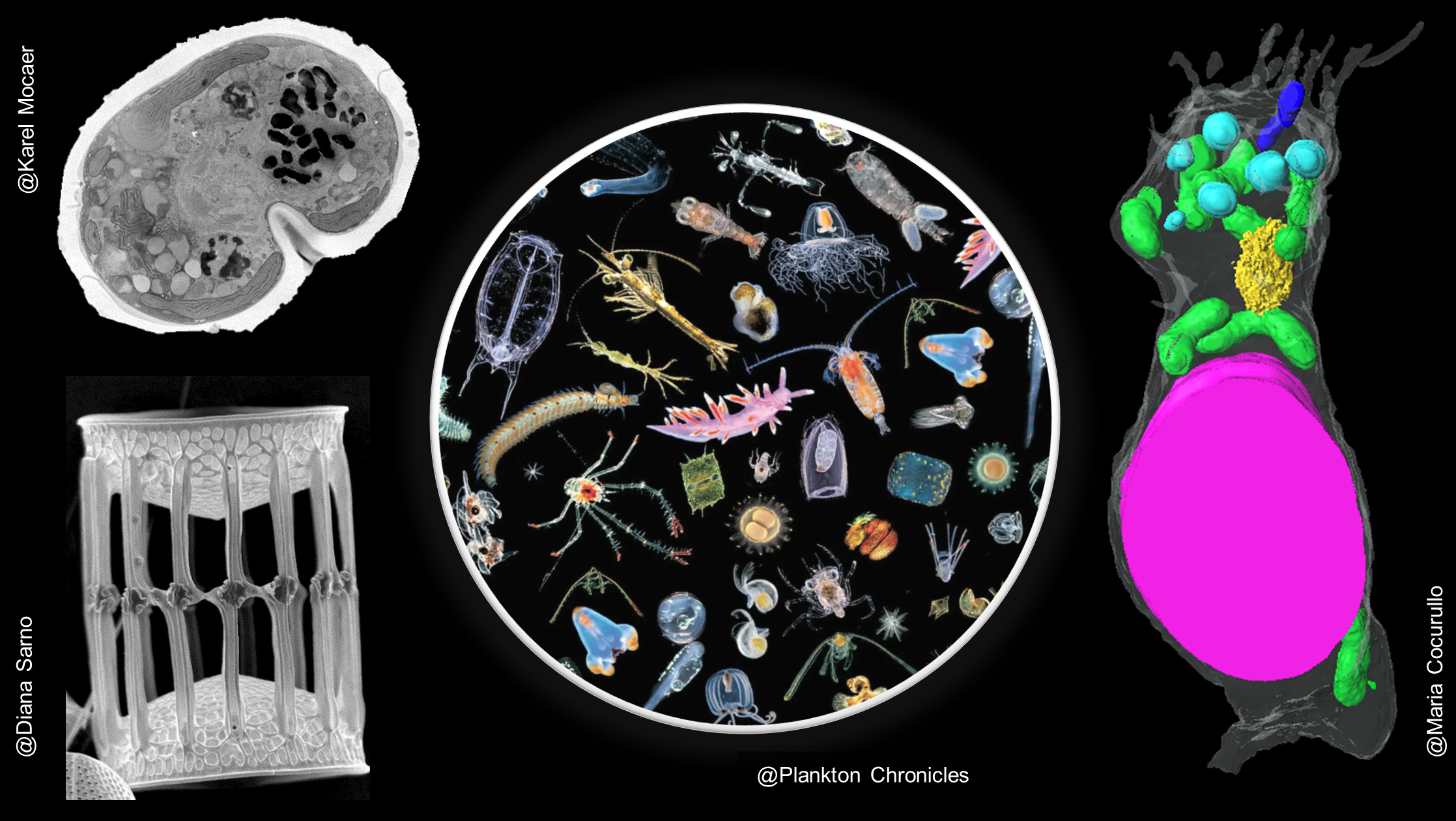
NEW Program
The Electron Microscopy Hands-On Course: sample preparation and imaging of marine environmental samples arises from a very strong and active collaboration between the Stazione Zoologica Anton Dohrn and the EMBL in Heidelberg.
The aim of the course is to provide a theoretical and practical training on electron microscopy starting from the basics to the preparation of samples with high pressure freezing and image acquisition using TEM and SEM.
The course will also include lectures on advanced and recently developed technologies as volume electron microscopy and correlative light-electron microscopy.
The course will be held at the Stazione Zoologica Anton Dohrn in Naples on 6-8 November 2023 and will target in particular researchers and technicians from scientific institutions interested in the field of electron microscopy. No documented experience in electron microscopy is required.
Theoretical lessons
Sample preparation for EM – Chemical fixations
Sample preparation for EM - High pressure Freezing- Freeze substitution
Image formation in TEM and SEM
Use of SEM and TEM in Taxonomy of Marine Organisms
Practical lessons
Sample preparation for SEM: sample sorting, fixation, dehydration, critical point drying, sputtering
High pressure Freezing
Ultramicrotomy
Observation at TEM
Observation at SEM
Lectures
Immunolabeling
Correlative Light Electron Microscopy
Volume Electron Microscopy
Teachers
Giovanna Benvenuto, SZN
Fabio Formiggini, IIT Napoli, SZN
Frédéric Leroux, Leica Microsystems
Paolo Ronchi, EMBL, Heidelberg
Diana Sarno, SZN
Lecturers
Raman Parashuraman, Euro-Bioimaging, Napoli
Roman Polishchuck, TIGEM, Napoli, Italy (to be confirmed)
Paolo Ronchi, EMBL, Heidelberg
Luigia Santella, SZN
Keynote lecturer
Detlev Arendt, EMBL, Heidelberg
Teaching assistants
Filomena Caccavale, Maria Cocurullo, Rita Graziano, Franco Iamunno, Isabella Percopo, Lorenza Rusciano, Eleonora Scalco (SZN), Marinella Pirozzi (CNR)
IMPORTANT INFORMATION
Application deadline September, 8th
Accepted participants will be notified by September, 15th
Registration and payment are due by September, 30th
Fee: 200 euro per person (coffee breaks, lunches, and social dinner included)
The course will be open to 14 participants. Preference will be given to strongly motivated applicants.
ORGANIZERS: Giovanna Benvenuto and Paolo Ronchi
Contact: This email address is being protected from spambots. You need JavaScript enabled to view it.
Follow us #EMHOC2023
First International Summer School on Extreme Environments: from Ecology to Biotechnology (ISSEE)
Location: Sicily Marine Centre, Stazione Zoologica Anton Dohrn, Messina (Italy)
The ISSEE Summer School will take place in 2023, from September 18 th to 21st, at the Sicily Marine Centre, Stazione Zoologica Anton Dohrn, Messina. The school is open to PhD students and early career researchers working in the fields of marine ecology and biotechnology. The course will be focused on multidisciplinary aspects involving the study of extreme environments, combining pure ecological issues related to adaptations and diversity of marine organisms (from microbes to marine invertebrates and vertebrates) and the exploration of such peculiar environments as sources for biotechnological purposes. In each day, the school will take care to deal with ecological and biotechnological themes, and the relationships between them. The summer school is a unique occasion to enhance cross-disciplinal collaboration, to improve skills and expertise on the knowledge of extreme ecosystems in taxonomy, high molecular approaches, bioprospecting. Professors and researchers will give lectures about their own research, and will share their experience with the students during group discussion sessions. Practical sessions are envisaged, i.e. observation of mesopelagic species, taxonomy, laboratory experience for the treatment of samples for biotechnological purposes (production of bioactive compounds) and observation of the bioluminescence phenomenon. Social events in Messina will be offered during the School to favoring the sharing of experience and the establishment of new scientific collaborations. Remote participation is allowed.
Detailed information on the program of our course and online registration form for the ISSEE 2023 are available at the following link
email: This email address is being protected from spambots. You need JavaScript enabled to view it., This email address is being protected from spambots. You need JavaScript enabled to view it., This email address is being protected from spambots. You need JavaScript enabled to view it.
Registration fee: 250 EU (Regular Partecipant); 100 EU (Remote Partecipant)
Deadlines
10 July: Send CV and motivation letter at This email address is being protected from spambots. You need JavaScript enabled to view it.
15 July: After acceptance please complete the registration form as indicated in the communication email of acceptance
25 July: After communication that the registration form is complete and accepted, please complete the payment within two days
BENTACS - BENthos TAxonomy CourseS - TAXONOMY OF DECAPODS
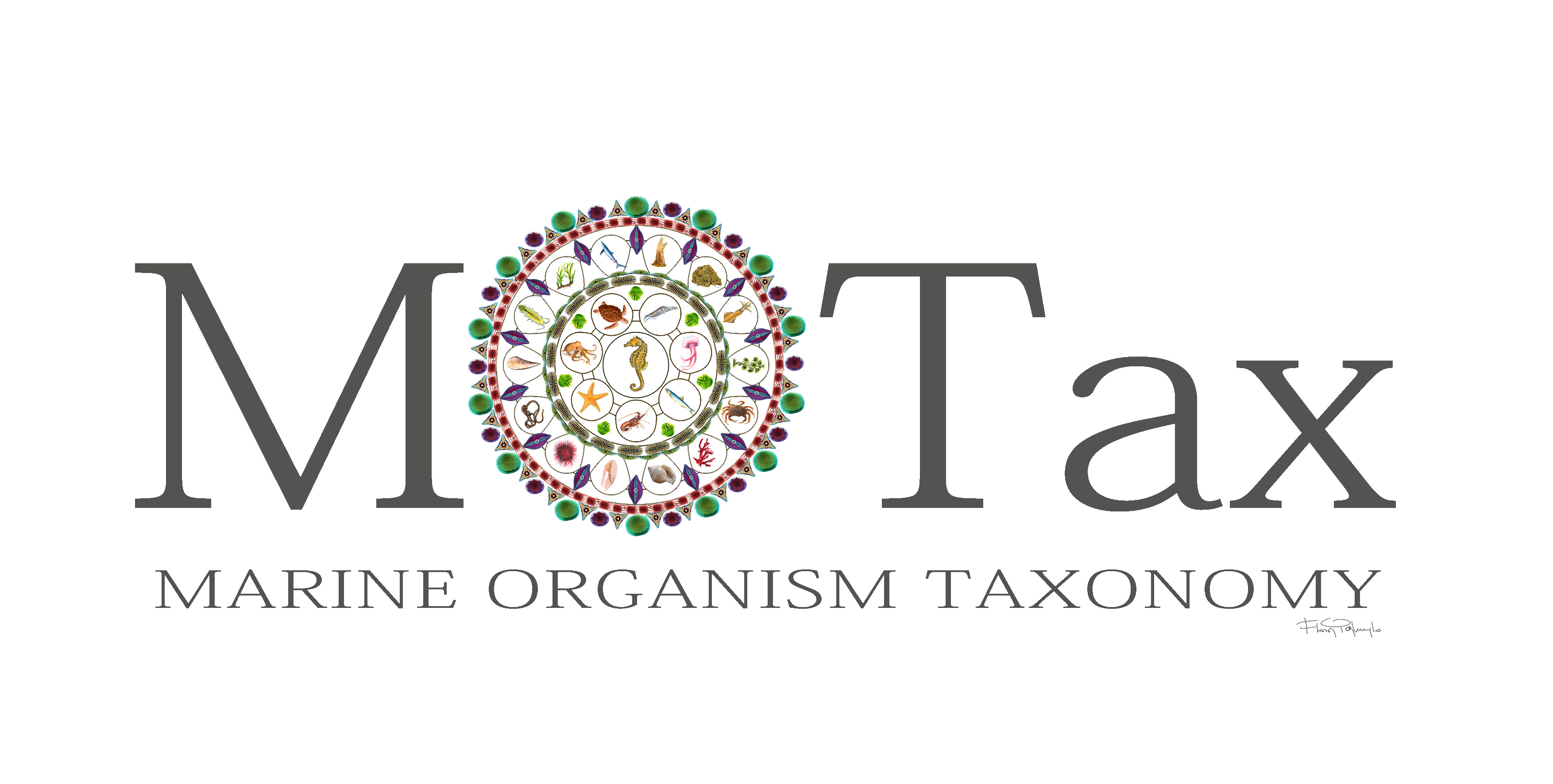 |
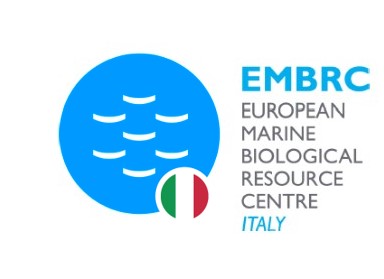 |
TAXONOMY OF DECAPODS
Stazione Zoologica Anton Dohrn Naples
Italy, 13-17 November 2023
The Course is over.
It was a great opportunity for organizers and students to update and discuss the topics of Decapod Taxonomy and Ecology.
Thanks to all!
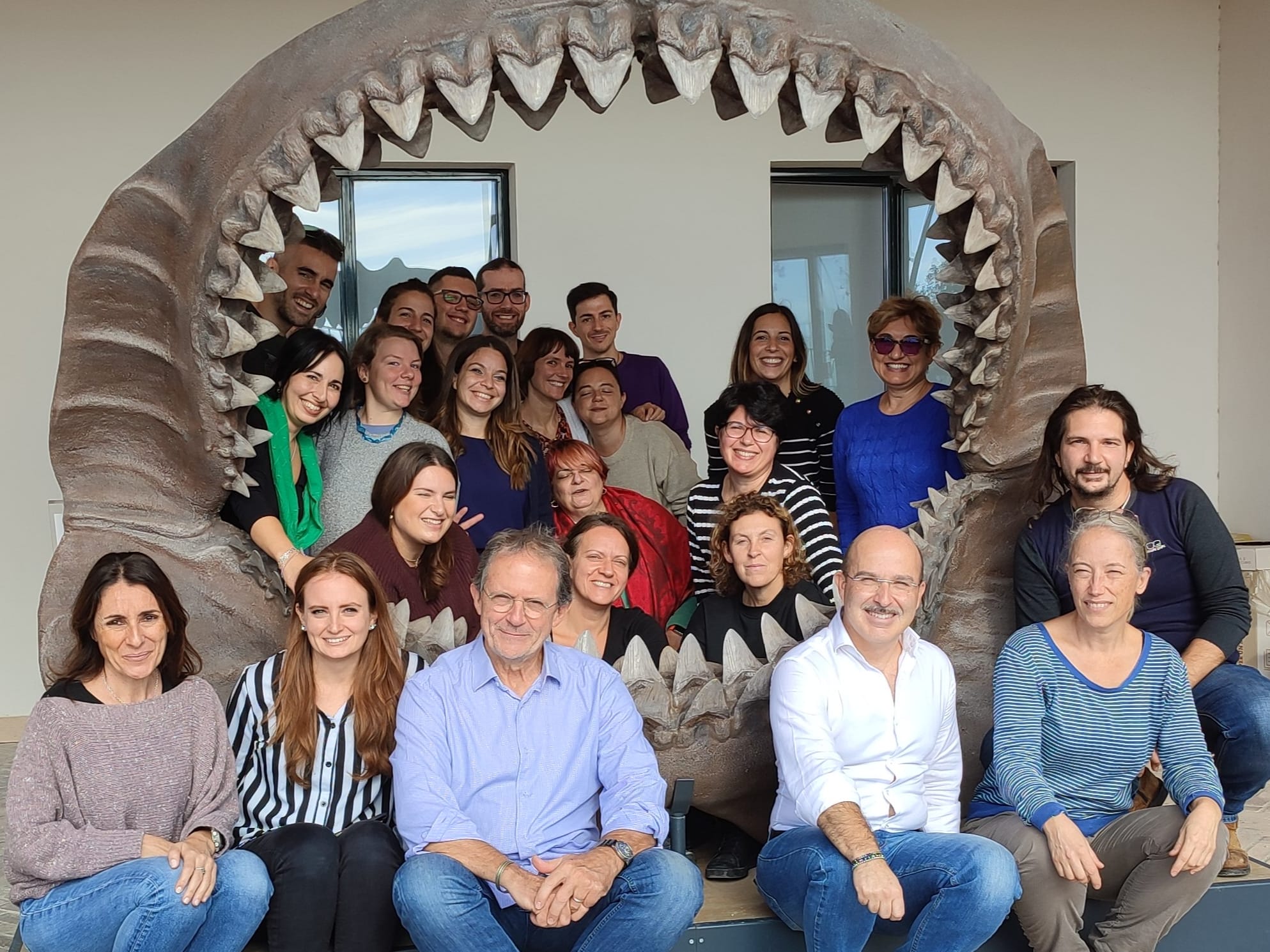
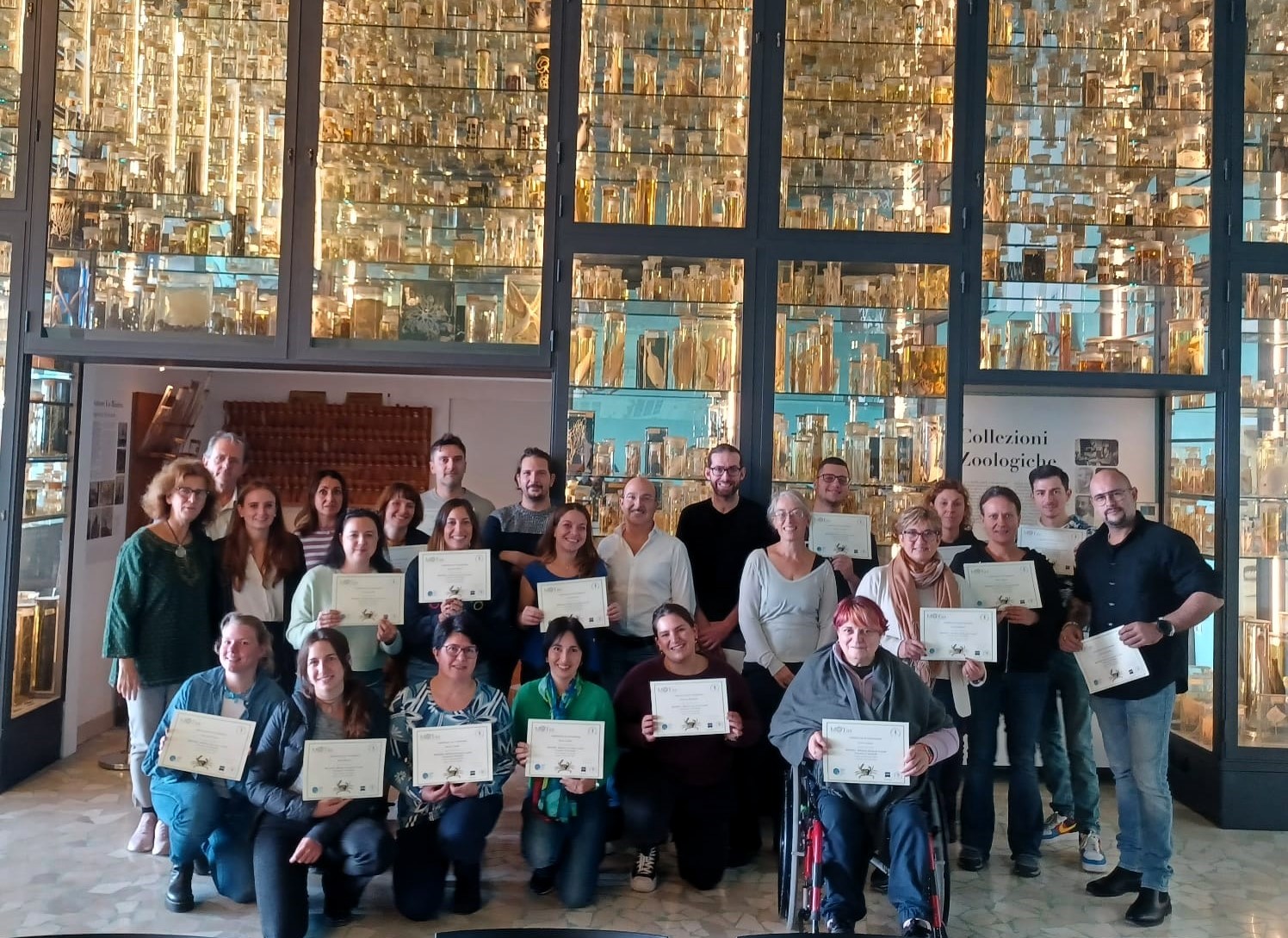
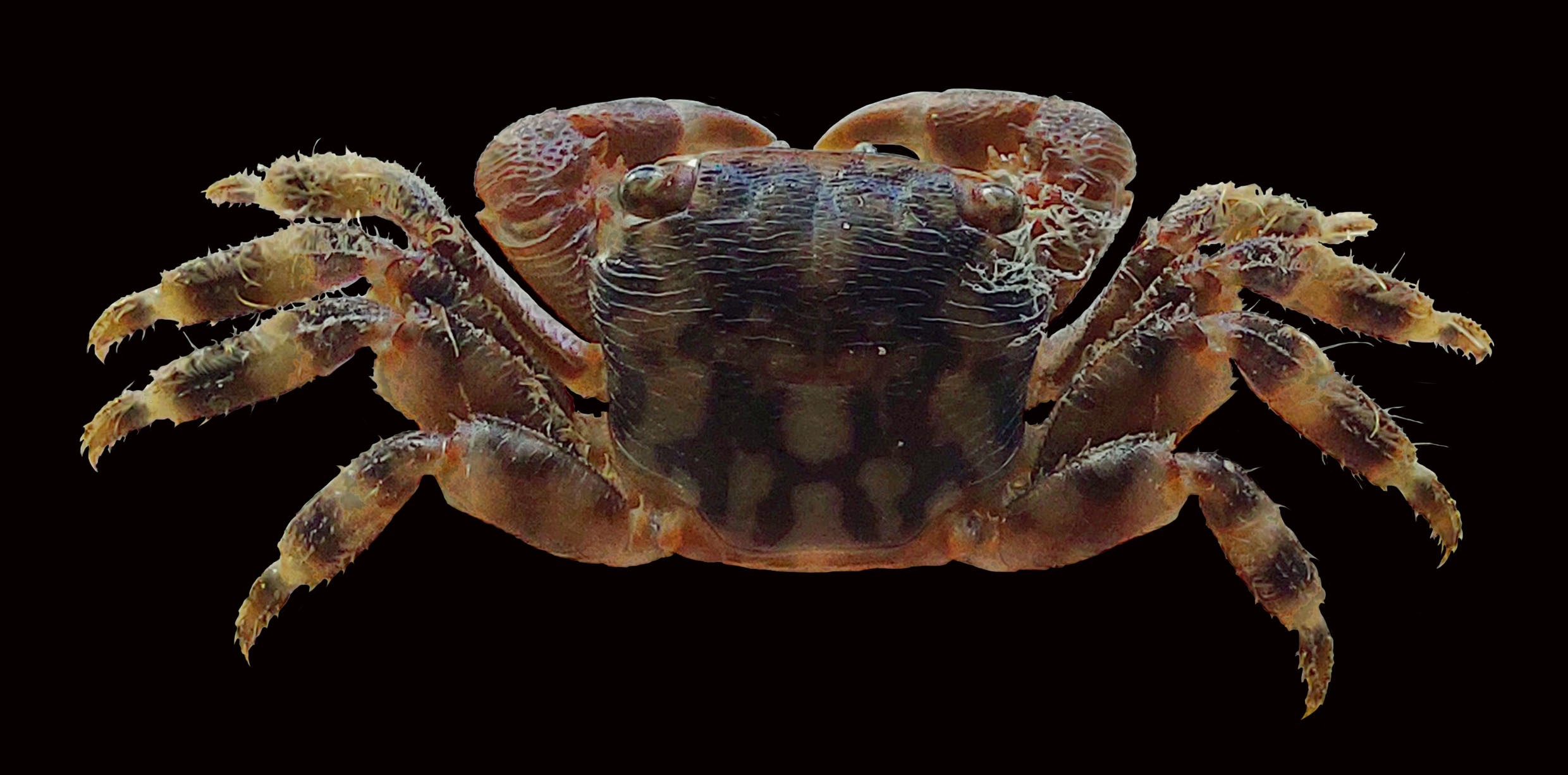 The Marine Organism Taxonomy (MOTax) core facility has launched a series of International Summer Schools (BENTACS - BENthos TAxonomy CourseS) focused on the taxonomy of the main groups of zoo-benthos from soft-bottom communities in the Mediterranean Sea. The courses will target in particular researchers and technicians from scientific institutions and from national/regional environmental agencies interested in the study of benthos biodiversity and ecology. A combination of lectures and microscope sessions will provide participants with a general theoretical framework and practical experience.
The Marine Organism Taxonomy (MOTax) core facility has launched a series of International Summer Schools (BENTACS - BENthos TAxonomy CourseS) focused on the taxonomy of the main groups of zoo-benthos from soft-bottom communities in the Mediterranean Sea. The courses will target in particular researchers and technicians from scientific institutions and from national/regional environmental agencies interested in the study of benthos biodiversity and ecology. A combination of lectures and microscope sessions will provide participants with a general theoretical framework and practical experience.
The 2nd MOTax course will provide an advanced training on the taxonomy and identification of decapod crustaceans. It will be held at the Stazione Zoologica Anton Dohrn in Naples on 13–17 November 2023. The course will be focused on selected families based on their ecological relevance, including species for which the taxonomic identification is particularly challenging.
Participants will be guided by expert taxonomists into the examination of preserved collections from different Mediterranean regions, as well as into the identification of their own samples. The course will offer an opportunity to discuss new challenges and perspectives into the fields of decapods taxonomy and ecology.
Theoretical lessons
- ecological role of decapods
- nomenclature, morphology, and glossary
- diagnostic characters of selected families/species living in the Mediterranean Sea
- molecular tools, species complexes, cryptic diversity, and phylogenies
- molecular and integrative taxonomy in the Mediterranean biota
Practical lessons
- microscope observation of selected families/species living in the Mediterranean Sea
Lecturers
Fabio Crocetta (Stazione Zoologica Anton Dohrn, Italy)
Paolo Fasciglione (Stazione Zoologica Anton Dohrn, Italy)
Sara Fratini (Università degli Studi di Firenze, Italy)
Gianna Innocenti (Università degli Studi di Firenze, Italy)
Carlo Pipitone (Consiglio Nazionale delle Ricerche - IAS, Italy)
Valentina Tanduo (Stazione Zoologica Anton Dohrn, Italy)
The course is open to 20 participants. Preference will be given to applicants with documented experience in taxonomy and identification of decapods.
IMPORTANT INFORMATION
Applications: Deadline date has been postponed - New dealine is 15 September
Participants will be notified by 30 September
Registration and payment are due by 15 October
Fee: 450 euro per person (coffee breaks, lunches, and social dinner included)
ORGANIZERS: Fabio Crocetta, Paolo Fasciglione, Rosanna Guglielmo, Diana Sarno
Info: This email address is being protected from spambots. You need JavaScript enabled to view it.
13/RBC/20 - Monitoraggio Sic in Calabria (MoSic)
 |
 |
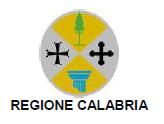 |
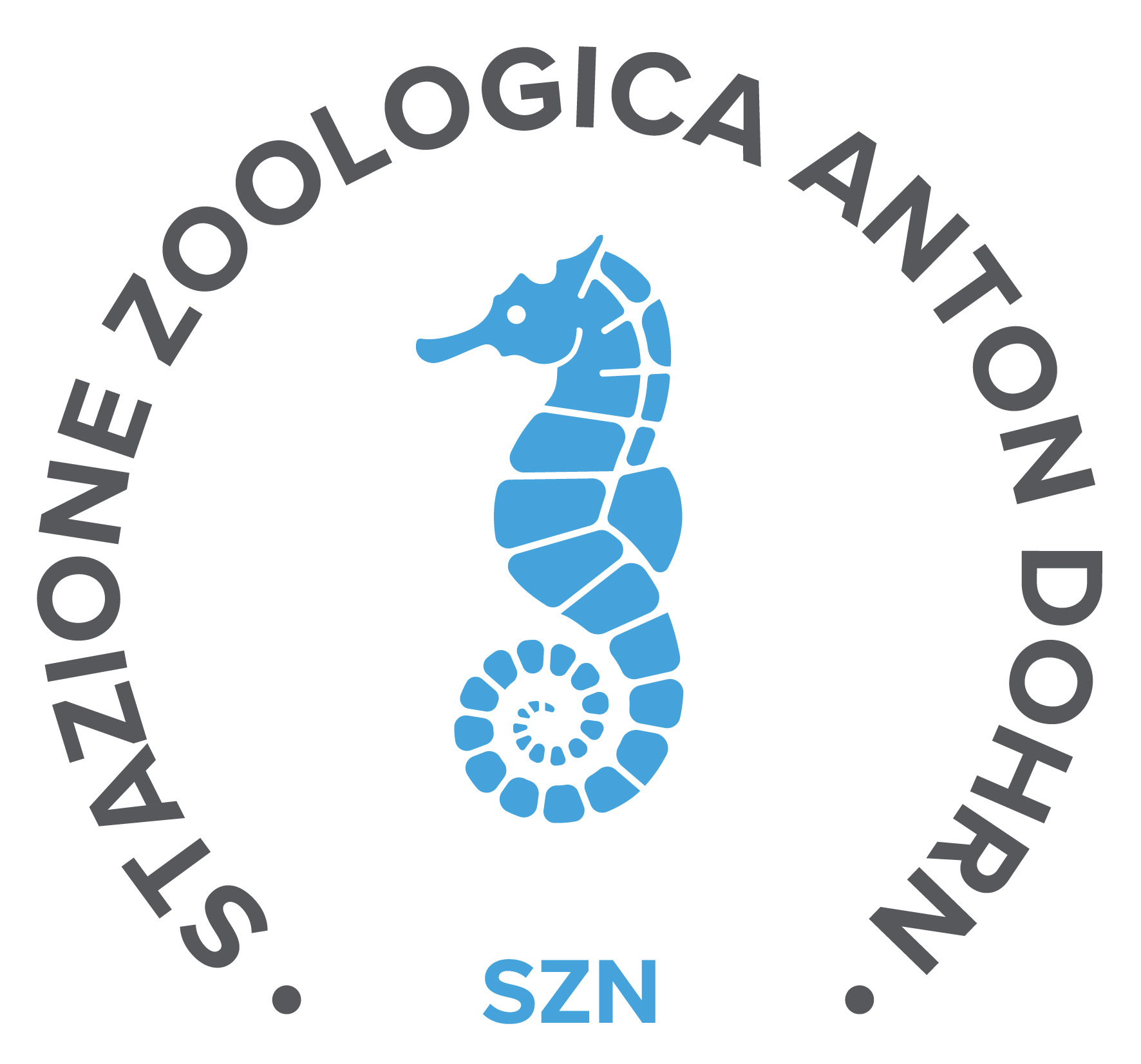 |
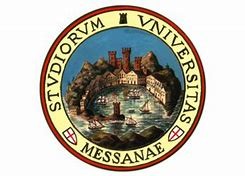 |
 |
 |
Monitoraggio SIC in Calabria”, PO FEAMP Calabria 2014-2020 Misura 1.40, (Protezione e ripristino della biodiversità e degli ecosistemi marini di compensazione nell’ ambito di attività di pesca sostenibili)
OBIETTIVO DEL PROGETTO
L'obiettivo generale del presente progetto è quello di proteggere e ripristinare la biodiversità e gli ecosistemi marini nell’ambito di attività di pesca sostenibili all’interno delle aree Natura 2000 della Regione Calabria.
Nello specifico verrà effettuata la ricognizione, aggiornamento e mappatura della pesca artigianale (aggiornamento flotta, caratteristiche attrezzi, specie target e by catch, dati di catture e sforzo) che opera nei SIC: IT9310053 Secca di Amendolara, IT9320097, IT9350172 Fondali da Punta Pezzo a Capo dell'Armi, IT9350173 Fondali di Scilla, IT9340093 Fondali di Capo Vaticano, IT9340092 Fondali di Pizzo Calabro, IT9340094 Fondali Capo Cozzo - S. Irene, Fondali da Crotone a Le Castella e nell’omonima Area Marina Protetta.
Tale attività sarà utile per l’aggiornamento dei piani di protezione e di gestione dei siti NATURA 2000. Nelle stesse aree sarà valutato lo stato di salute dell’habitat di interesse comunitario Praterie di Posidonie (Posidonion oceanicae) (habitat prioritario, cod. 1120*- Direttiva Habitat).
Un’importante attività di progetto prevede anche la sensibilizzazione degli operatori della pesca su tematiche legate alla tutela e alla conservazione della biodiversità marina (marine litter, best practices), per tale attività verranno coinvolte le principali marinerie della Regione Calabria sia del versante ionico che tirrenico, incluso lo Stretto di Messina.
Fondo
PO FEAMP Calabria 2014-2020 Codice progetto: 13/RBC/20 CUP J12C20003450009
Programma
PO FEAMP Calabria 2014-2020 Misura 1.40 Par. 1 lettera D, E, F, G)
Durata
23/09/2020 - 30/11/2022
Ruolo SZN
Coordinatore
Referente SZN
Silvestro Greco / Pierpaolo Consoli
Partner di Progetto
Università della Calabria, Università di Messina
Members of the Scientific Council 2023
| SZN Scientific Council | |
|
|
Keywords: molluscs, cephalopods, phylogenomics, systematics, deep sea This email address is being protected from spambots. You need JavaScript enabled to view it. |
|
|
Keywords: microbiology, evolution, ecology, environment, phylogenetic analysis, marine ecology, microbial molecular biology, genomics This email address is being protected from spambots. You need JavaScript enabled to view it. |
|
|
Department of Marine and Coastal Sciences, School of Environmental and Biological Sciences, Rutgers, The State University of New Jersey, USA Keywords: origins of life, biogeochemical cycles, photosynthesis, biological oceanography, molecular biology, biochemistry and biophysics, physiological adaptation, plant physiology, evolution, mathematical modeling, symbiosis This email address is being protected from spambots. You need JavaScript enabled to view it. |
|
|
Keywords: marine biology and ecology, marine conservation, marine socio-ecology, marine protected areas This email address is being protected from spambots. You need JavaScript enabled to view it. |
|
|
Institute for Biological Sciences (INSB) at CNRS in Paris Keywords: evolution, epithelia, cell polarity, cell-cell junctions, morphogenesis This email address is being protected from spambots. You need JavaScript enabled to view it. |
|
|
Keywords: marine ecology, community ecology, marine conservation, ocean solutions This email address is being protected from spambots. You need JavaScript enabled to view it. |
International Summer School of Natural Products (ISSNP) 2023

V EDITION ISSNP: 2th – 7th July 2023
We are glad to announce the 5th edition of the “International Summer School of Natural Products” (ISSNP)
This edition will be hosted by the Grand Hotel Pianeta Maratea (Maratea, Italy).
The school is designed for PhD students and young researchers and aimed to build up a lively scientific community tackling global challenges in the field of natural products.
Strategical objectives will be focused on interdisciplinary and intersectoral learning, networking and cross collaborations.
A combination of lectures, seminars and interactive sessions will provide an immersive and challenging experience and team-based problem-solving activities will help the participants to be prepared for future research studies in these fields.
Applicants will learn from top scientists and professionals.
In order to become a leader yourself, it is very important to learn from leaders. ISSNP attracts experts who are typically busy and rarely available during the academic year.
Applicants will be able to network with like-minded colleagues.
ISSNP is built around specific themes and targets students and researchers who have an interest in and enthusiasm for this special subject, Natural Products. Networks will be constructed throughout the 5 days of school activities, during lectures, seminars and interactive sessions, working in-group.
Registration
To register visit to the Registration Page for the V Edition of the International Summer School on Natural Products (ISSNP) at https://www.issnpschool.org/register-now-2023/
The programme will be available at the link: https://www.issnpschool.org/programme/
Further information is available at the school website: https://www.issnpschool.org/
“BIAGIO ALBERTO DELLA BEFFA” PRIZE
Indena (www.indena.com), in partnership with the International Summer School of Natural Products ISSNP, is pleased to announce the institution of a biennial prize dedicated to the memory of its founder “Biagio Alberto Della Beffa.”
For the second edition of the “Biagio Alberto Della Beffa” Prize, three contest winners will be selected among the next International Summer School on Natural Products edition participants. The prize aims to award and support the professional development of young talented scientists in Natural Product Chemistry.
The prize is directed to Chemists, Pharmacists and Pharmaceutical Chemists possessing at least one of the following title(s)/requisite(s) related to Chemistry and Pharmaceutical Sciences:
• currently attending the 2nd or subsequent year of a PhD course;
• PhD degree achieved in 2021-2023;
• currently attending other postgraduate qualifications;
• postgraduate qualification title.
The three winners will be awarded a Grant of 5.000,00 €, and they will benefit of to a 6-month internship at Indena’s premises, that includes a Managerial course.
The prize will be awarded during the International Summer School on Natural Products, organizes among the 2nd and the 7th July 2023, signifying a closer collaboration between Industry and Academia.
To apply: https://www.issnpschool.org/apply-now/
Deadlines
Registration- Abstract Submission April 17th 2023
Application “BIAGIO ALBERTO DELLA BEFFA” Prize May 15th 2023
Kindly feel free to contact us (This email address is being protected from spambots. You need JavaScript enabled to view it.) for any further queries.
Scientific committee
Valeria COSTANTINO, President (Università degli Studi di Napoli Federico II)
Adele CUTIGNANO (Istituto di chimica biomolecolare, CNR)
Gerardo DELLA SALA (Stazione Zoologica Anton Dohrn)
Germana ESPOSITO (Università degli Studi di Napoli Federico II)
Gabriele FONTANA (Indena)
Roberta MARCHETTI (Università degli Studi di Napoli Federico II)
Luigi MILELLA (Università degli Studi della Basilicata)
Alberto MINASSI (Università degli Studi del Piemonte Orientale)
Maria Chiara MONTI (Università degli Studi di Salerno)
Mattia MORI (Università degli Studi di Siena)
Vera MUCCILLI (Università degli Studi di Catania)
Giorgia OLIVIERO (Università degli Studi di Napoli Federico II)
Giovanna ROMANO (Stazione Zoologica Anton Dohrn)
Valentina SEPE (Università degli Studi di Napoli Federico II)
Alessandra SILVANI (Università di Milano)
Advisory Board
William GERWICK (Department of Biology and Marine Biology and Center for Marine Science, UNCW)
Chiara GUERRERA (INSERM – Necker Proteomics, Paris)
Patrícia VALENTÃO (Faculty of Pharmacy, University of Porto).
PIR01_00018 - IPANEMA
PIR01_00018 - IPANEMA Implementazione del laboratorio naturale ECCSEL di Panarea e dell’osservatorio marino
Il progetto IPANEMA, finanziato dal PON – Programma Operativo Nazionale Ricerca e Innovazione 2014-2020 con la concessione di un finanziamento per un importo complessivo di € 8.786.920,18, prevede l’implementazione del laboratorio ECCSEL NatLab-Italy di Panarea con l’acquisto di strumentazioni all’avanguardia, utili alla determinazione e all’analisi dei principali parametri fisici, chimici, geologici e geofisici, nonché per l'acquisizione di sistemi di campionamento e di analisi in situ, sia tradizionali che innovativi, in modalità continua e sincronizzata. Tali strumentazioni consentiranno ricerche multidisciplinari di eccellenza a Panarea, località parte di un grande strato-vulcano sottomarino quiescente, caratterizzato da faglie tettoniche attive che formano un esteso campo fumarolico emittente CO2, e che è pertanto già stata scelta da OGS per indagare gli effetti dell'incremento dell'anidride carbonica sulle funzioni biogeochimiche ed ecologiche dell'ecosistema marino.
OBIETTIVO DEL PROGETTO
IPANEMA punta al potenziamento di una parte circoscritta dell'infrastruttura pan-europea ERIC – ECCSEL (European Carbon Dioxide Capture and Storage Laboratory Infrastructure) dedicata all'avanzamento delle competenze e delle conoscenze nel campo delle geo-scienze applicate e, in particolare, del laboratorio naturale ECCSEL NatLab-Italy di Panarea, parte integrante del nodo italiano di cui il soggetto beneficiario OGS costituisce il capofila a partire dall'anno 2018. Attraverso questo progetto, la sede a terra verrà fornita di nuova strumentazione scientifica da laboratorio e da campo altamente innovativa ai fini del campionamento, l'osservazione in situ e l'acquisizione di dati, così da sviluppare studi multidisciplinari nel campo delle scienze fisiche, chimiche, biologiche e geologiche. Mentre la sensoristica a mare verrà implementata mediante la messa in opera di un nuovo osservatorio sottomarino accogliente sensori, come lo AUV cioè un veicolo autonomo subacqueo ed il ROV guidato invece da remoto, capaci di raggiungere luoghi difficilmente accessibili alle comuni navi da ricerca e porre a disposizione nuove misure da applicare in ricerche inerenti i cambiamenti climatici, l'osservazione oceanica, la pesca e la mappatura degli habitat, l'acquacoltura offshore, l'archeologia marina, l'ecologia degli ambienti profondi, nonché per il monitoraggio ambientale e l’ecosistema.
Il progetto IPANEMA vede la partecipazione di OGS quale soggetto proponente (attraverso il laboratorio ECCSEL NatLab Italy di Panarea e il CTMO - Centro di Taratura e Metrologia Oceanografica quali proprie Unità Operative) e di INGV - Istituto Nazionale di Geofisica e Vulcanologia, INFN - Istituto Nazionale di Fisica Nucleare e SZN - Stazione Zoologica "Anton Dohrn" quali co-proponenti.
- Fondo: FESR
- Codice progetto: PIR01_00018
- Asse - Azione: Asse II - Azione Progetti Tematici II.1 - Infrastrutture di ricerca
Programma
• IT MIUR - PON
Durata
• 15/06/2019 - 14/06/2023
Tipologia progettuale
• Ricerca
Homepage
• http://www.ponricerca.gov.it/
Ruolo OGS
Coordinatore
Referente OGS
Partner di Progetto
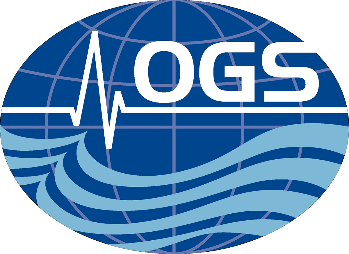 |
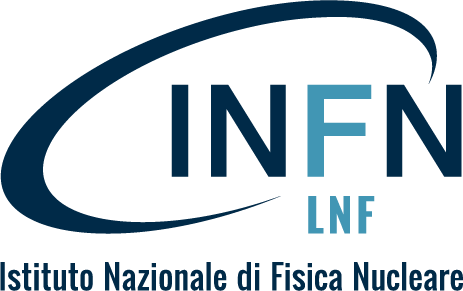 |
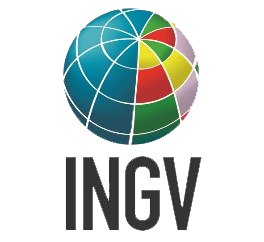 |
 |
Deep REef restoration And litter removal in the Mediterranean sea
 Programme: Programme for Environment and Climate Action (LIFE)
Programme: Programme for Environment and Climate Action (LIFE)
Title of the Project: Deep REef restoration And litter removal in the Mediterranean sea
Acronym: LIFE21-NAT-IT-LIFE DREAM
Duration: 01/09/2022 – 31/08/2027
Budget totalwe: € 5.308.472,89€
Web site
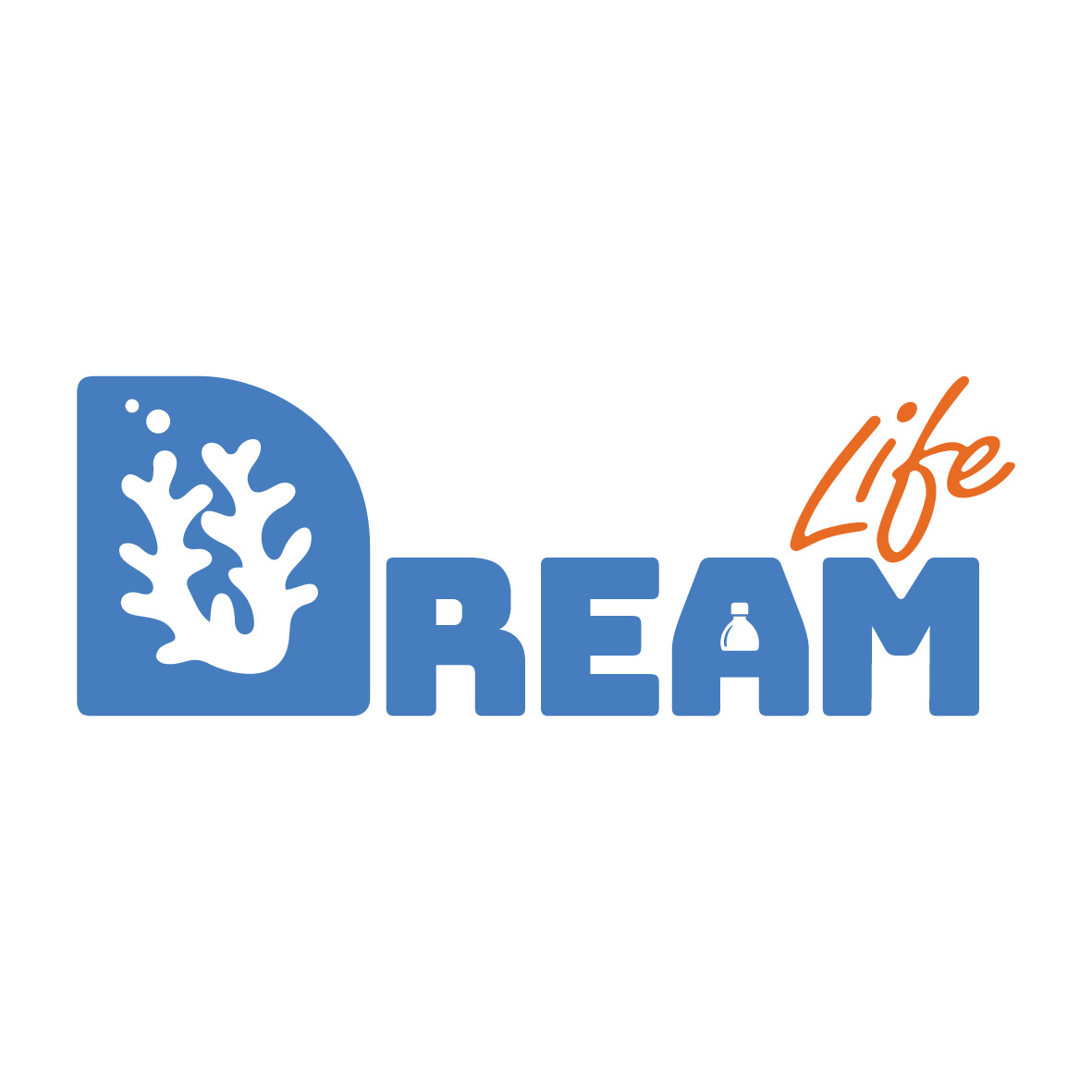 The Marine Deep Reefs are fundamental benthic habitats recognized for acting as CO2 sinks and attracting highly diverse fauna. Multiple pressures are threatening the health of these habitats and resulting in the loss of their associated ecological functions, including climate change, fishing increments, and litter. The objective of LIFE21-NAT-IT-LIFE DREAM is to implement an innovative and sustainable approach to mitigate the effects of anthropogenic impacts on these habitats. LIFE21-NAT-IT-LIFE DREAM will provide supporting information for extending Natura 2000 to deep-sea habitats so as to promote actions of protection, recovery, and preservation. Additionally, the project will operate in pilot sites by deploying artificial structures aimed at facilitating the growth of deep reef-forming species and removing marine litter.
The Marine Deep Reefs are fundamental benthic habitats recognized for acting as CO2 sinks and attracting highly diverse fauna. Multiple pressures are threatening the health of these habitats and resulting in the loss of their associated ecological functions, including climate change, fishing increments, and litter. The objective of LIFE21-NAT-IT-LIFE DREAM is to implement an innovative and sustainable approach to mitigate the effects of anthropogenic impacts on these habitats. LIFE21-NAT-IT-LIFE DREAM will provide supporting information for extending Natura 2000 to deep-sea habitats so as to promote actions of protection, recovery, and preservation. Additionally, the project will operate in pilot sites by deploying artificial structures aimed at facilitating the growth of deep reef-forming species and removing marine litter.
The CNR-ISMAR is the Coordinator of the Project and, in addition to managing the project, will collect and manage the data of LIFE21-NAT-IT-LIFE DREAM in Spatial Data Infrastructure consisting in software, hardware, spatial data, metadata, web services, data storage and standards. The created Geoportal will allow to share data, results, and improve the knowledge base, permitting further exploitation outside the project.
The main objectives of the Project are:
- Improving the knowledge base on Deep Reefs and the stressors threatening this habitat
- Extending the N2000 network by integrating the previous knowledge and acquiring new data
- Facilitate and promote the passive and active restoration of the Deep Reefs
- Prevent further litter accumulation
- Foster the circular economy concepts by recycling and reuse the removed marine litter
- Increase the public awareness about ocean health and human wellbeing
The expected results are:
- The development of an innovative and sustainable approach to mitigate anthropic pressure on Deep Reefs and promote their recovery
- The production of scientific data and knowledge on Deep Reefs to sustain the flow from scientists to decision-makers and enhance the natural resources management and governance
- The extension of the Natura 2000 network to deep benthic habitats by collecting and providing information to support the designation of 2 new deep-sea sites
- Apply restoration actions (either active or passive) that will extend the surface of the target habitats and provide new substrate for reefs forming species
- Develop a prototype for the removal of marine litter and enhance the cooperation with fisheries to follow a circular economy perspective and further recycle and reuse the litter removed
Contact in ISMAR: This email address is being protected from spambots. You need JavaScript enabled to view it.
Consortium
1. Consiglio Nazionale delle Ricerche - Istituto di Scienze Marine (CNR/ISMAR) (IT)
2. Università degli Studi di Bari Aldo Moro (IT)
3. Hellenic Centre for Marine Research (EL)
4. Net European Consulting srls (IT)
5. Enaleia Astiki Mi Kerdoskopiki Etaireia (EL)
6. Università Politecnica delle Marche (IT)
7. Agencia Estatal Consejo Superior De Investigaciones Cientificas (ES)
8. Università degli Studi di Napoli Federico II (IT)
9. Regione Puglia (IT)
10. Region of Thessaly (EL)
11. Stazione Zoologica Anton Dohrn (IT)
12. Federpesca – Federazione Nazionale delle Imprese di Pesca (IT)
Publications 2023
D’Aniello E, Amodeo P, Vitale RM. (2023) Marine Natural and Nature-Inspired Compounds Targeting Peroxisome Proliferator Activated Receptors (PPARs). Marine Drugs, 21(2):89. https://doi.org/10.3390/md21020089
Gafranek, J.T., D’Aniello, E., Ravisankar, P., Thakkar, K., Vagnozzi, R.J., Lim, H.-W., Salomonis, N., and Waxman, J.S. (2023). Sinus venosus adaptation models prolonged cardiovascular disease and reveals insights into evolutionary transitions of the vertebrate heart. Nature Communications 14, 5509. https://doi.org/10.1038/s41467-023-41184-y
Russo, M. T., A. Santin, A. Zuccarotto, S. Leone, A. Palumbo, M. I. Ferrante and I. Castellano (2023). "The first genetic engineered system for ovothiol biosynthesis in diatoms reveals a mitochondrial localization for the sulfoxide synthase OvoA." Open Biology 13(2): 220309. https://doi.org/10.1098/rsob.220309
Publications 2023
Barrenechea Angeles, I., M. L. Romero-Martínez, M. Cavaliere, S. Varrella, F. Francescangeli, R. Piredda, M. G. Mazzocchi, M. Montresor, A. Schirone, I. Delbono, F. Margiotta, C. Corinaldesi, S. Chiavarini, M. R. Montereali, J. Rimauro, L. Parrella, L. Musco, A. Dell'Anno, M. Tangherlini, J. Pawlowski and F. Frontalini (2023). "Encapsulated in sediments: eDNA deciphers the ecosystem history of one of the most polluted European marine sites." Environment International 172: 107738. https://doi.org/10.1016/j.envint.2023.107738
Bommarito, C., Díaz-Morales, D.M., Guy-Haim, T., Noè, S., Delasalle, J., Buchholz, B., Khosravi, M., Rilov, G., Sures, B., and Wahl, M. (2023). Warming and parasitism impair the performance of Baltic native and invasive macroalgae and their associated fauna. Limnology and Oceanography 68, 1852-1864. https://doi.org/10.1002/lno.12390
Bonanomi, S., Annibale, O., Lucchetti, A., & Bottaro, M. (2023). Extinct but not entirely: A new occurrence of the critically endangered Squatina squatina (Linnaeus, 1758) stresses the urgency of its conservation in the Adriatic sea. Estuarine, Coastal and Shelf Science, 287, 108344.
Bottaro, M., Sinopoli, M., Bertocci, I., Follesa, M. C., Cau, A., Consalvo, I., ... & Danovaro, R. (2023). Jaws from the deep: biological and ecological insights on the kitefin shark Dalatias licha from the Mediterranean Sea. Frontiers in Marine Science, 10.
Consales, G., Bottaro, M., Mancusi, C., Neri, A., Sartor, P., Voliani, A., ... & Marsili, L. (2023). Persistent Organic Pollutants (POPs) in three bathyal chondrichthyes from the North-Western Mediterranean Sea. Marine Pollution Bulletin, 196, 115647.
Costa, V., Sciutteri, V., Consoli, P., Manea, E., Menini, E., Andaloro, F., Romeo, T., and Danovaro, R. (2023). Volcanic-associated ecosystems of the Mediterranean Sea: a systematic map and an interactive tool to support their conservation. PeerJ 11, e15162. https://doi.org/10.7717/peerj.15162
Díaz-Morales, D.M., Bommarito, C., Knol, J., Grabner, D.S., Noè, S., Rilov, G., Wahl, M., Guy-Haim, T., and Sures, B. (2023). Parasitism enhances gastropod feeding on invasive and native algae while altering essential energy reserves for organismal homeostasis upon warming. Science of The Total Environment 863, 160727. https://doi.org/10.1016/j.scitotenv.2022.160727
Fioravanti, T., Maio, N., Psomadakis, P. N., Manzotti, S., Gigante, A. P., Splendiani, A., Bottaro, M., ... & Barucchi, V. C. (2023). The sawfish (Rhinopristiformes, Pristidae) rostrum displayed in the “Basilica Santuario del Carmine Maggiore” in Naples, Italy: A long story of legends and taxonomic errors. Contributions to Zoology, 1(aop), 1-20.
Gallo, S., Nania, G., Caruso, V., Zicarelli, G., Leonetti, F. L., Giglio, G., Bottaro, M., ... & Sperone, E. (2023). Bioaccumulation of Trace Elements in the Muscle of the Blackmouth Catshark Galeus melastomus from Mediterranean Waters. Biology, 12(7), 951.
Motta, G., Caffara, M., Fioravanti, M. L., Bottaro, M., Avian, M., Terlizzi, A., & Tedesco, P. (2023). Parasitic infection in the scyphozoan Rhizostoma pulmo (Macri, 1778). Scientific Reports, 13(1), 5549.
Pfister, C.A., Cardini, U., Mirasole, A., Montilla, L.M., Veseli, I., Gattuso, J.-P., and Teixido, N. (2023). Microbial associates of an endemic Mediterranean seagrass enhance the access of the host and the surrounding seawater to inorganic nitrogen under ocean acidification. Scientific Reports 13, 19996. https://doi.org/10.1038/s41598-023-47126-4
Russo, M. T., A. Santin, A. Zuccarotto, S. Leone, A. Palumbo, M. I. Ferrante and I. Castellano (2023). "The first genetic engineered system for ovothiol biosynthesis in diatoms reveals a mitochondrial localization for the sulfoxide synthase OvoA." Open Biology 13(2): 220309. https://doi.org/10.1098/rsob.220309
Savin, A.; Sini, M.; Xynogala, I.; Lioupa, V.; Vougioukalou, K.; Stamatis, K.; Noè, S.; Ragkousis, M.; Gerovasileiou, V.; Dailianis, T.; Katsanevakis, S. (2023). Assessment of Macroalgal Communities on Shallow Rocky Reefs in the Aegean Sea Indicates an Impoverished Ecological Status. Medit. Mar. Sci. 24, 241-258. https://doi.org/10.12681/mms.31034
Sinopoli, M., Badalamenti, F., Bottaro, M., & D’Anna, G. (2023). The Role of Fish Aggregating Devices (FADs) in Juvenile Fish Dispersal along the North-Western Coast of Sicily. Journal of Marine Science and Engineering, 11(4), 746.
Somma E, Terlizzi A, Costantini M, Madeira M, Zupo V. (2023) Global Changes Alter the Successions of Early Colonizers of Benthic Surfaces. Journal of Marine Science and Engineering, 11: 1232. https://doi:10.3390/jmse11061232












